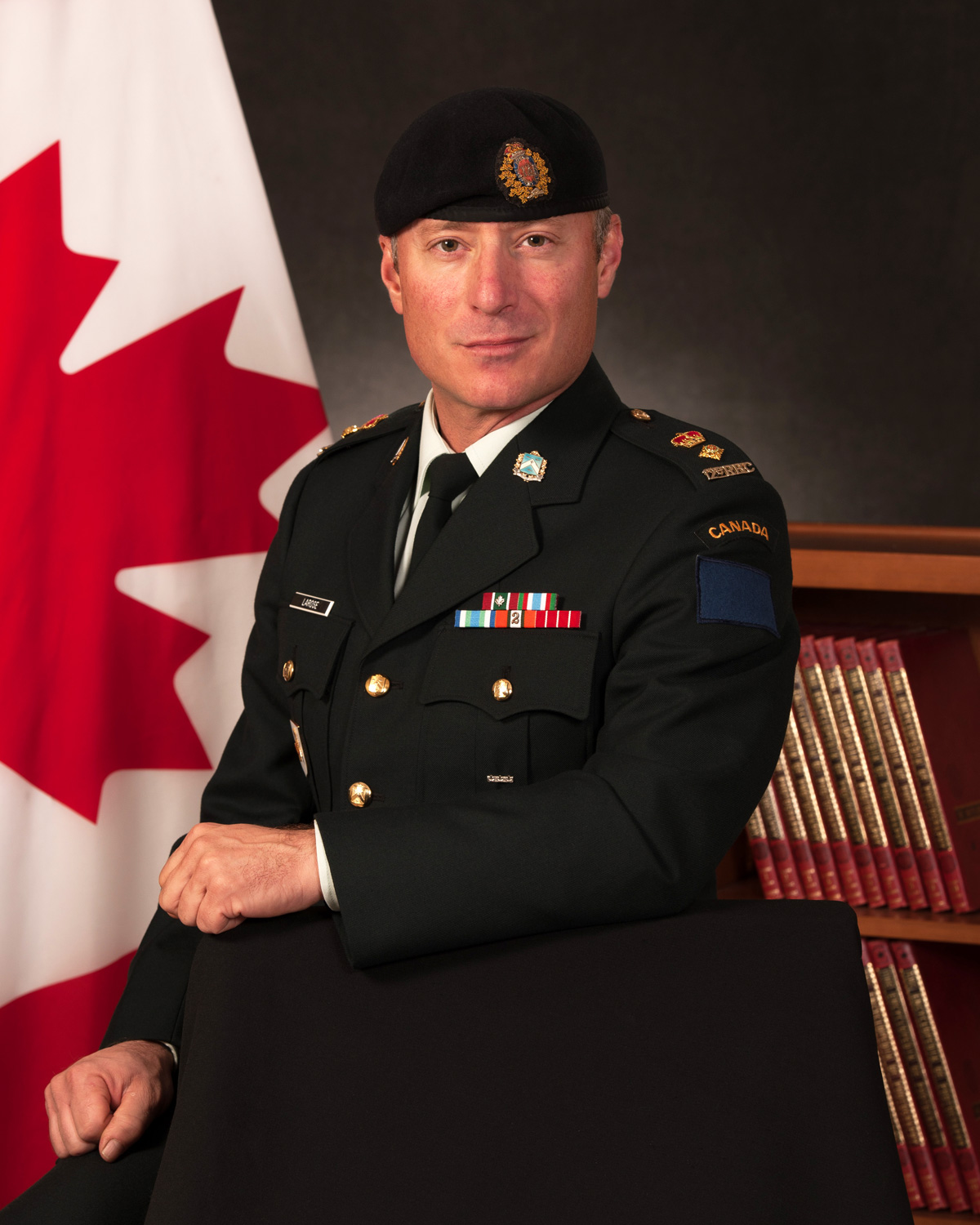When Pascal Larose joined the military in 1997, he had some specific goals in mind. “I joined for three reasons – for adventure, to get a student summer job and to have an opportunity to work for the United Nations,” he says with a smile. “This was not supposed to last for more than two decades!”

Adventures he’s had, having been deployed on military operations in Sierra Leone, Afghanistan and Egypt. He’s also taken part in rescue and relief efforts at home, including the 1998 Ice Storm and the 2016 wildfire that ravaged Fort McMurray.
“The Canadian Armed Forces are, in my opinion, the best insurance policy that Canadians, at home or abroad, could ever have. We are the very last safety net,” says Lieutenant-Colonel Larose, Chief of Staff of 35th Canadian Brigade Group. “Being in the air, the sea or on the ground, the Canadian military can provide security and stability anywhere and anytime. Most people don’t know the Canadian Armed Forces conduct more than 1,000 search and rescue operations in Canada every year, including in remote offshore and arctic locations.”
Along the way, Larose managed to find the time to earn his Executive MBA, which he completed this past spring.
Template for success
But the Armed Forces can also provide logistical support that are rivalled by very few civilian agencies. In 2016, Justin Trudeau’s newly-elected government decided to admit 25,000 Syrian refugees into the country. Larose was tasked to plan and conduct the military support for the ambitious operation.
“This was the first time the ‘Whole of Government’ concept, (joint activities performed by diverse ministries and agencies in order to provide a common solution to a situation), was put into practice on such a scale and on short notice on homeland,” he says, noting that the successful mission is “now used as a case study and standard reference by other countries.”
In Norway with NATO
At present, Larose is in Norway, taking part in the largest NATO exercise ever conducted. Exercise Trident Juncture involves more than 60 ships, 250 aircraft, 10,000 vehicles and 50,000 soldiers from 31 different countries. “I am serving as the Chief of Staff of the Canadian Multinational Brigade composed of 1,000 soldiers and officers from Canada, Norway, France, Bulgaria and the USA.”
Larose says this diversity of this experience (“I have served in a combat unit, a military school, operational headquarters, logistical chain and even in information technology and management.”) is the biggest challenge he faces.
“Serving in the military means you have to face multiple unconventional challenges, take on numerous different posts and work in an ever-changing environment,” he says. “In 21 years of service, I have served in 14 different positions in Canada and abroad. I have never been in the same job for more than two years. It isn’t easy mastering a new job every few years.”
Challenges met
However, in meeting these challenges, the Armed Forces produce resilient, creative people who are able to adapt to fluid situations.
“Most people believe that being in the army makes you rigid… and that the chain of command controls everything. This is completely false. Yes, there is a strong hierarchal system in place, but this system is not any different than any big business,” he says. “Learning to perform in an environment in which unconventional and unexpected situations are common requires a lot of initiative and creativity, which can never be taught in school or university.”
With the Armistice Day centennial fast approaching, Larose feels fortunate that what he thought was going to be a short-term commitment, has turned into something much bigger and more profound. “On a day like Remembrance Day, I always remind my kids that we are living in one of the best countries in the world because Canadian soldiers were ready make the ultimate sacrifice,” he says. “On a very small scale, I feel that I am part of a long tradition of men and women who dream of and strive for a better world.”
